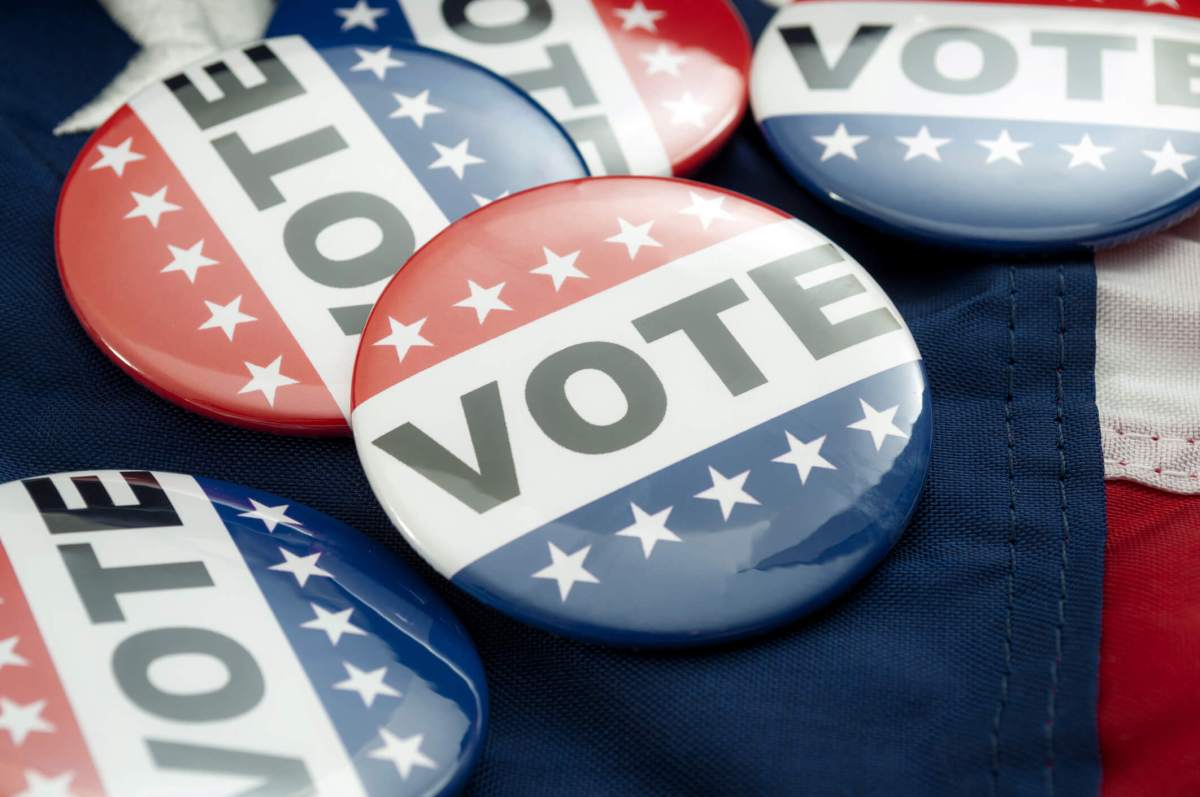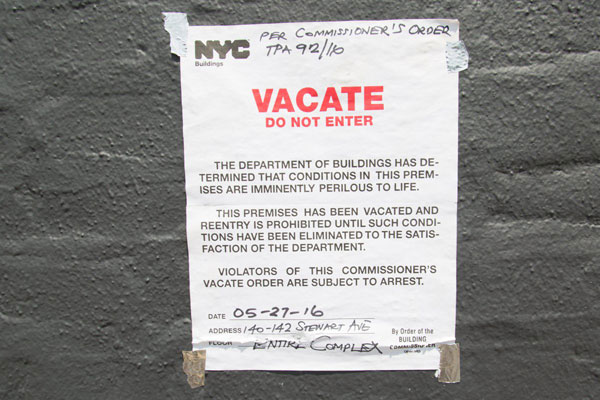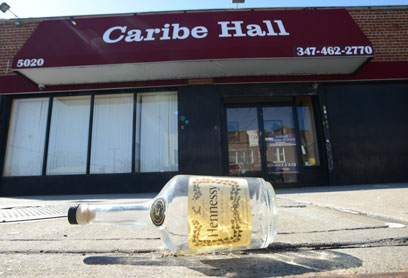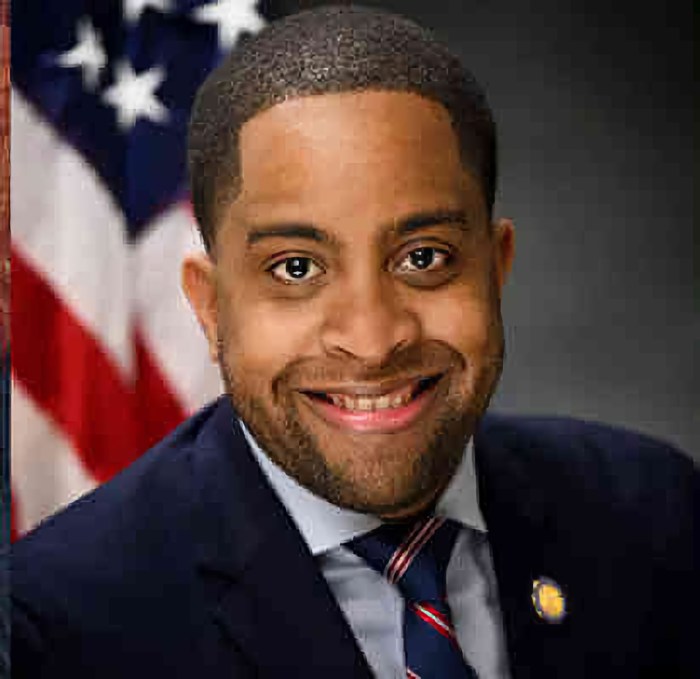An intra-party fight has broken out within Brooklyn’s often-marginalized Republican Party, as a conservative bigwig is looking to usurp the leadership of the Kings County GOP — citing consistently “disappointing” electoral results, including in the 2021 citywide elections.
“Despite the Red Wave that swept much of the rest of the City, here in Brooklyn we once again had mostly disappointing results,” said Stephen Maresca in a statement. “I fear that we are quickly acclimating to accepting losses in every contest as long as it’s not a blowout.”
Maresca, who currently serves as the executive director of the Kings County Republican Party, is now looking to move up the ranks and take on the role of Kings County GOP chairman — the top job in the county’s party organization, which is currently held by Ted Ghorra, who took the post in 2016 and showed no signs of letting go of the reigns.
“I am proud of the work that our Brooklyn Republican Party has done under my leadership,” Ghorra said. “Our work has been steady, productive, and looks to additional future successes. These are real, tangible gains upon which we will continue to grow while I am chairperson.”
Ultimately, party insiders will meet sometime next summer to decide the now-contested leadership question, with hundreds of county committee members (hyper-local electeds that represent a few square blocks each) having a say in the decision.
Republican district leaders (42 unpaid elected posts, each representing an entire assembly district) will also have outsized sway in the decision, as many county committee members often allow the district leader to vote on their behalf using “proxy votes.”
That will force Ghorra, Maresca, and any other potential challengers to appeal to both higher-level political insiders, as well as the grassroots base of the GOP — composed of many increasingly frustrated Republicans, who bemoan the lack of sway in local politics, compared to their Democratic counterparts.
An uncompetitive party
In the announcement of his intentions to challenge Ghorra’s grip atop the local GOP, Maresca slammed the party boss’ “facile excuses” for the Republican Party’s near-irrelevance in local politics, and promised to grow the party’s footprint from Greenpoint to Coney Island.
“Conditioning our voters to be happy with electoral defeats across the board will end any chance that our Party has of playing a meaningful role in any public policy decisions affecting Brooklyn,” Maresca said.
Currently, Brooklyn is home to just three elected Republicans: newly-elected Sheepshead Bay Councilmember Inna Vernikov, along with US Rep. Nicole Malliotakis and state Assemblymember Michael Tannousis, who both represent Staten Island and portions of southern Brooklyn.
While the 2021 city elections did see increased turnout from Republican voters, and multiple closer-than-expected races, the party of elephant-logos barely competed in the majority of the borough’s elections.
In the Brooklyn-wide race for borough president, Democrat Antonio Reynoso beat Republican Menachem Raitport with over 70 percent of the vote. The last time a Republican candidate was elected to Borough Hall was over 100 years ago, when Lewis Pounds won in 1913 while also running on the Fusion Party line.
Much of the reason for Republicans’ lackluster results stem from a severe disadvantage among the number of registered red voters — as there are over 1.2 million enrolled Democrats in Brooklyn, compared to just 148,416 Republicans.
That deficit, which has grown in recent years with party polarization and changing demographics, makes the job of electing Republicans rather difficult.
But, rather than accepting a left-leaning electorate as an insurmountable obstacle for the Republican Party, Maresca said that a revived focus on quality-of-life issues would be their ticket to renewed success in the overwhelmingly-blue borough.
“No one moves into a neighborhood hoping for more crime, higher property taxes, increased rents, and filthy streets,” said Maresca. “We can no longer fear and avoid engaging voters who haven’t voted Republican in the past, we have to make our case to them and ask for their support.”
In his statement responding to Maresca’s challenge, Ghorra highlighted the 2020 victories of Malliotakis and Tannousis, as well as Vernikov’s win in November, while boasting about an increase of 18,700 registered Republicans during his tenure as chairperson. (The borough saw nearly 155,000 new registered Democrats during the same timeframe).
“Simply stated, in the face of incredible challenges, we have changed the politics of the borough for the better, including having increased active Republican voter registration by approximately 18,700,” Ghorra said.
For his part, Maresca argued that both Malliotakis’ and Tannousis’ campaigns were propelled more by the Staten Island portion of their respective districts, rather than by voters in Brooklyn. (Rose had beaten Malliotakis 52-47 percent in Brooklyn, but lost handily across the Verrazzano).
“She won, but not really with too much help from Brooklyn. She got a heavy victory in Staten Island,” he said. “We really didn’t help much there.”
Intra-party squabbles
When he took the Brooklyn GOP’s top job in November of 2016, largely with the help of Republican stalwart Marty Golden, Ghorra laid out a public vision for increasing diversity and inclusion within the party’s ranks, while focusing on providing voters with tangible benefits to aligning with the Republican party.
That breath-of-fresh-air vision would fail to last long, though.
Having officially assumed the post shortly after the divisive election of President Donald Trump, the Democratic party saw a huge wave of grassroots energy, leading to a pair of “Blue Wave” elections in 2017 and 2018.
When Mayor Bill de Blasio ran for reelection in 2017, Malliotakis, his then-Republican challenger, barely cracked 30 percent of the vote share in Brooklyn. Meanwhile, that year saw Democrats take home victories in all 16 of the borough’s Council districts.
The following year saw brutal losses for the Grand Old Party, as Democrat Max Rose secured victory in the race for Congress in Bay Ridge and Staten Island over Republican incumbent Dan Donovan. Likewise, Sen. Golden also lost to upstart Democrat Andrew Gounardes that year, along with other red-to-blue shifts.
The party did slightly rebound in 2020 and 2021, with greater Republican turnout that propelled the borough’s only three elected Republicans.
That is not enough for some local Republican politicos, though, and they’ve taken aim at Ghorra, saying he failed to deliver on his promises of inclusion.
Christine Parker, who ran for Crown Heights’ Council seat in 2017 as a Republican, blasted the current leadership regime for failing to have a “strategic platform in place to grow the party” and having “no intention of being inclusive.”
“I am not a big fan of the gross ineptitude of the leadership, as unfortunately Ted is in charge,” Parker said. “He doesn’t reach out to central Brooklyn. When I ran my race, I had no support, with the exception of a check – but that’s not real support.”
“Outreach is going to be important,” she added. “But in these communities, nobody knows Ted Ghorra’s name.”
Rather than attempting to build bridges into majority-minority communities, Parker said, the party leadership has become content with resting in their southwest Brooklyn strongholds.
“We don’t run any candidates [in other parts of the borough]. So why would anyone believe in the Republican party?” she asked. “I think there’s a lack of real genuine interest in being Republicans, and standing on Republican values, and doing the work.”
Both Parker and Maresca argued that party leadership has become overly consumed by doling out jobs to political allies, both as consultants on campaigns, as well as working for the notoriously-patronage-laden Board of Elections.
“We should be focused on electing candidates, not making sure people make money from campaigns,” Maresca said.
“Basically, they’re just lining their pockets. A Lot of folks get on campaigns…and they don’t have any idea what they’re doing,” Parker said, adding that political insiders often fail to challenge leadership for fear of missing out on jobs. “They like the thought of working for the BOE, so they don’t rock the boat…but, it’s like, get a real job.”
Ghorra’s critics also pointed to lackluster funding numbers as a major red flag for the party’s future, as the party’s campaign war chest has been depleted over the years.
“The fundraising of the Brooklyn Republican Party has been anemic this year, and non-existent in previous years, that has to change,” said Maresca. “I look forward to not only dramatically increasing our fundraising activity but to also substantially raising the amount of money we invest in races throughout the entire borough, not just one or two areas.”
Others bemoaned the type of candidates being tapped for the party’s nomination.
Mark Szuszkiewicz, the 2020 Republican nominee for Coney Island’s Assembly seat, and the 2021 Republican nominee for the area’s Council seat, for example, had voiced support for the far-right conspiracy theory QAnon. Nevertheless, Ghorra said he was “proud to endorse Szuszkiewicz.” The candidate lost both elections, though not by blow-out margins.
Meanwhile, the party’s social media accounts are filled with typical Republican talking points that have been a turnoff for potentially-gettable voters, like theories of voter fraud, rhetoric opposing vaccine mandates, and anti-immigrant sentiments.
Laying out a vision
Even the optimistic Maresca conceded that Republicans have a long trek before seriously competing in borough-wide elections in solid-blue Brooklyn — but, he says, their footprint could be considerably expanded, potentially giving the party tangible influence over the lawmaking process in New York City.
“We can do well in this county. We may not elect the majority of Council seats, or borough president, or District Attorney,” he said. “But there are large pockets of Brooklyn that we can do really well.”
The would-be party boss pointed to various ethnic enclaves in the borough that have seen recent rightward-shifts as reason for optimism for the GOP, and urged Republicans to keep pushing at the grassroots level for their support.
“The nature of Republicans and the Republican Party in Brooklyn are changing,” Maresca said. “The Orthodox community, and the Russian community, are now very strong Republicans.”
Parker added that voters in predominantly-Black neighborhoods of central and southeastern Brooklyn could be convinced to align with Republicans, but the current leadership has failed to make inroads.
“People of African and Caribbean descent are conservative. Most of the folks, they won’t tell you this, but they align with the ideas of Republicans,” she said. “But they vote with Democrats, because who wouldn’t want to be with a winner?”
Maresca, meanwhile, vowed to do the necessary outreach and grow the borough’s party power.
As for his chances to assume the organization’s top gig, Maresca said he was “confident” that party members would back his calls for change.
“I get calls regularly from party activists, and district leaders [who say]…we’d be better off with another chairman, so I have been urged to do this since last year,” he said.























